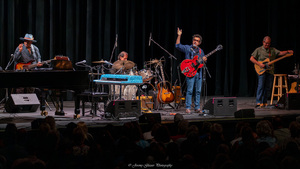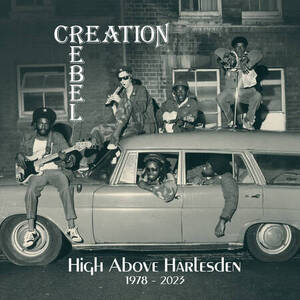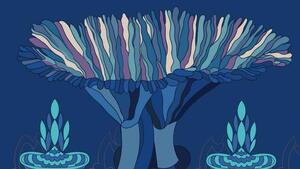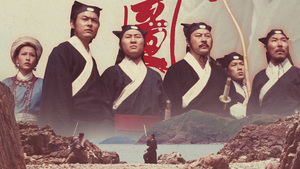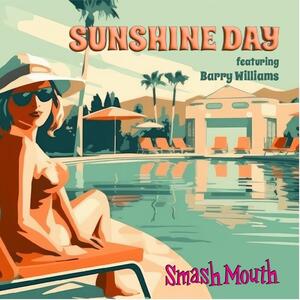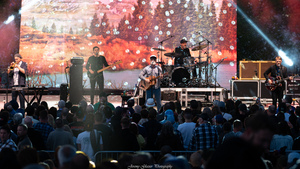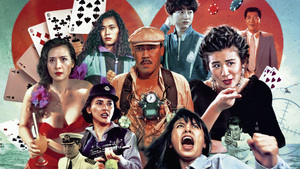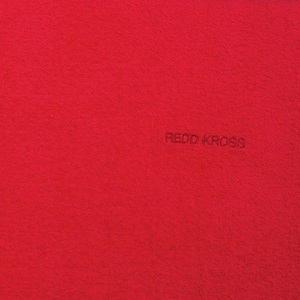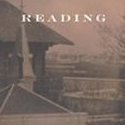
Reading Writing
by Julian Gracq
Turtle Point Press

What I want from a literary critic — and what is rarely given — is for a critic to tell me, better than I could do myself, why reading a book gives me a pleasure that cannot be replaced. You only speak of what is not exclusive to it, and what it has exclusively is all that matters to me. A book that has seduced me is like a woman who places me under her spell: to hell with her ancestors, birthplace, background, relationships, education, and childhood friends!
That is just one of Julien Gracq’s unique observations in Reading Writing, and it is a desire he puts into practice throughout this collection of impressions and critical musings. Gracq notes that the exclusivity of Goethe’s novels, The Sorrows of Young Werther excepted, is to be found in an “abstract quality of the narrative fabric, which almost always treats the external world as a working drawing.” His Wilhelm Meister in particular is “a flimsy novel so excessively decorous it seems to have come into the world already swaddled in the mists of propriety” with an “aftertaste of cold veal in mayonnaise” (italics Gracq’s). Huysmans’ fictional works, on the other hand, “resemble an edifice of rare stones shattered by an earthquake; luxurious quarry stones and everything destined to rise loftily in tiers […] These are sumptuous rock piles of books.” For Proust, toward whom Gracq is more neutral, “the past never sings, […] it resurges into consciousness and almost surges into violence,” and in his Remembrance of Things Past, “the central mass of the book imperiously comes down and plasters everything against itself that tends to protrude beyond it, through an all-powerful force of gravity.” Gracq’s way of reading these and other writers is singular and, like his own work, unpretentiously surreal in a way that captures the poetic essence of a thing and throws reality into sharper relief, making him an excellent critic by any definition of the word – including his own.
This is the first English translation of En lisant en écrivant, originally published nearly three decades ago, and it brings to an Anglophone readership one more of comparatively few works from a writer who is underappreciated in his native France on account of the self-imposed distance he maintains from the prize culture and all its related elbow-rubbing. Gracq, whose real name is Louis Poirier, is now in his ninety-sixth year, and he is still, though it’s more than half a century on, more renowned for his principled refusal of the prestigious Prix Goncourt for his 1950 novel Le Rivage des Syrtes (The Opposite Shore) than for his sparing but meticulously crafted output of novels, plays, criticism and poetry, very little of which has yet found its way into English. Turtle Point Press, the publisher responsible for reintroducing Mina Curtiss’ translated volume of Proust’s selected correspondence under its Helen Marx imprint earlier this year, seems to be taking great steps to correct these inexplicable (and inexcusable) gaps in our literary imports.
Reading Writing is divided into fifteen sections of varying length that loosely organize Gracq’s disparate musings according to themes like “Landscape and the Novel,” “Literature and Cinema,” “Work and Memor,” and “Surrealism.” I’m not sure whether these categories are Gracq’s own or were imposed by an editor, but some of the entries under one heading could easily fit under another and vice versa. Not that this makes a great deal of difference. The pithy, aphoristic style of Reading Writing makes it a book better dipped into at random than read straight through; its categorization seems more like a Linnaean compulsion for order than an act complimentary to the nonlinear, reflective nature of the book itself.
As conducive as the aphoristic style is to page-at-random perusal, Reading Writing isn’t necessarily light reading. Even the entries that run for no more than a few sentences are dense with thought and intricate metaphors. Gracq assumes (insofar as he can, since many of these entries actually read like eloquent notes to himself or a longtime correspondent with the same interests) a familiarity with Stendhal, Flaubert, Nerval, Balzac, Dostoyevsky, Goethe, Proust, Mallarmé, Baudelaire and Rimbaud, to name only a few writers that fall under his rumination, and he engages in a dialogue of sorts with the poet and critic Paul Valèry, whose eclectic Cahiers bear some similarities to Reading Writing, throughout. To get the most out of Gracq’s insights, a reader should have – at the minimum – well-thumbed copies of Valèry, The Red and the Black, The Charterhouse of Parma, Remembrance of Things Past and The Flowers of Evil in his library. Better still, he/she will have memorized the entire canon of French literature from 1700 onward and be equally well0-versed in German classics, cinema, opera, Shakespeare and painting.
But there are more general observations that are less alienating, indeed welcoming, to the reader who isn’t able to quote at length from Stendhal. Take, for instance, this exquisite description of the cinematic medium:
The share of inactive, insignificant, neutral filler […] is generally never as great in a painting, a poem, even in a novel, as it is in the cinema, where it reaches its maximum. In the most rigorously composed, most purely significant and pared-down image, the camera’s rectangular frame still takes in a swarm of objects — the set designer’s bric-a-brac, landscaping details, sparkling waters, cast shadows, clouds, the movement of leaves — which are extra, which are just there, and which the sensitive roll of film captures in a state of non-participation […] A character is caught in the gelatin of the roll of film like an insect in its piece of amber, suspended pell-mell with leaves, grains of sand, flower petals, fragments of bark.
Or this juxtaposition of the film and the novel which immediately follows it:
The deep affinity one has for a film is translated by the need to see it again, but that which one has for a book is not linked, or only episodically, to the need to read it again […] Every film, however magnificent, thus retains the character of a manufactured object at the end of its chain of production, to take or leave as a whole; not soluble in memory or reverie, defined by the clear and isolating contour of its peremptory images and its rigid framing, it is — if I dare use this expression — non-psychodegradable, a “unit” that can certainly be enclosed in the memory but does not dissolve, or penetrate, or sow seed there.
Non-psychodegradable. The term would be pure gold to a postmodern academic who would use it as the basis of a book on film studies; but Gracq is content to employ it as little more than a descriptive summary of a thought that fills less than a page-and-a-half, and even then he introduces it with a polite disclaimer, as if such an overt display of wit were unbecoming.
Nor is it impossible to digest Gracq’s thoughts on books one might never have read. Even if Proust is one of those names that is shibboleth to some distant circle of literati, a reader can appreciate Gracq’s view that “Guermantes Way remains both the most shimmering and most superficial part of Remembrance (of Things Past); it really has to do with the society novelist, monocle secured to his eye, circulating through the salons under the aegis of the parodic phylactery, I am observing.” Or his opinion that “Valèry’s reflections on literature are those of a writer in whom the pleasure of reading is at its minimum, the concern for personal verification at its maximum. His natural frostiness in the matter makes it so that each time he attacks a novel, it is in the manner of a leader of ancient gymnastics criticizing a lack of economy in the motions of coitus: he takes offence at wasted energy, the stakes of which he does not wish to consider.” The imagery of the monocle, the coitus parallel – these are the defining characteristics of Gracq’s critical writing, and these are what make him both original and accessible, often the most antithetical of pairings.
As stunning as Gracq’s insights can be, one should be careful not to be swept away by his charms. Apropos of The Red and the Black, his claim that “[a] character in a novel, however lifelike he may be, instantly loses his suppleness and freedom if we encounter him in a scene with an actual historical figure, because suddenly he has been linked to an isolated fixed point: for a moment, he is nothing more than a coat hung on a peg” is wholly invalidated by William Boyd’s masterful novel Any Human Heart, in which his fictional protagonist, Logan Mountstuart, mingles with a number of real-life historical figures. (Coincidentally, I read Gracq’s passage and had this skeptical reaction on the same day that this article appeared in the Guardian.) And his assertion that “there is no world of Stendhal in the sense that we speak of the world of Dostoyevsky or the world of Kafka: there is just the world” is contradicted by what he writes a mere twenty pages earlier: “Everyone knows that every great novelist creates a ‘world’ […] – Stendhal does both more and less at once: he establishes a second, inhabitable native land for his true readers, off to the side, a retreat suspended outside time, not really situated, not really dated, a refuge made for life’s Sundays, where the air is drier, more bracing, where life flows, relaxed and fresh.” It’s easy to be lulled into a reverential stupor by the poetry of Gracq’s phrasing and overlook these moments when he raises his flag on opposing hilltops.
But the greatest minds are beset by contradictions, as Leonard Bernstein, himself a tangle of contradictions, pointed out in his The Unanswered Question lectures. To read Gracq is not just to find a critic who can explain “better than I could do myself, why reading a book gives me a pleasure that cannot be replaced” but also to be accompanied on a unique tour of the world of arts and literature, and to come to see much of it with renewed vision. So profound is its impact that reviewing Reading Writing presents its own challenge. A newfound temptation exists to analyze and write about it as Gracq himself would, and to attempt to meet his conception of the ideal critic. I doubt that I’ve done so here; but if I’ve approached that lofty aspiration by even a fraction of an inch, then I can hope to have done justice to this wonderful collection, so fluidly translated by Jeanine Herman.


